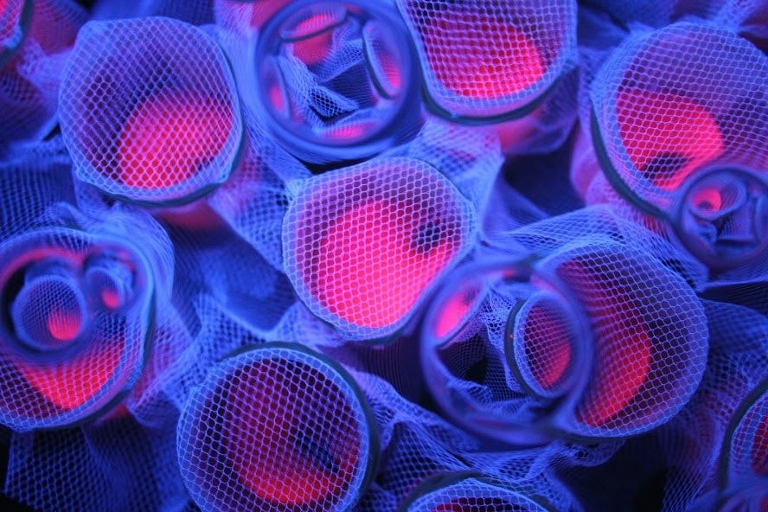This post was first published on the Cambridge Core blog, based on the original paper by Williams et al. It was selected as Parasitology‘s paper of the month for September 2019, and so is freely available for the month.
The impact of parasites can often reach beyond their individual hosts, shaping populations and communities in their ecosystems. Parasites often control the behaviour of their hosts, leading to their role as “ecosystem engineers,” changing the ways in which the hosts physically shape their environments.
In lakes and rivers, gammarid amphipods, small shrimp-like crustaceans, are known to act as ecosystem engineers by digging into the sand, in a process called bioturbation. Bioturbation is a major process in the ecosystem, as this digging alters the concentration of oxygen in the sand, the concentration of nutrients in the water, and the biological communities living in and on the sand. We wanted to know whether the amphipods would dig into the sand more or less when infected with behaviour-changing parasites, like Polymorphus minutus, and whether the temperature of the ecosystem influenced the rate of digging.
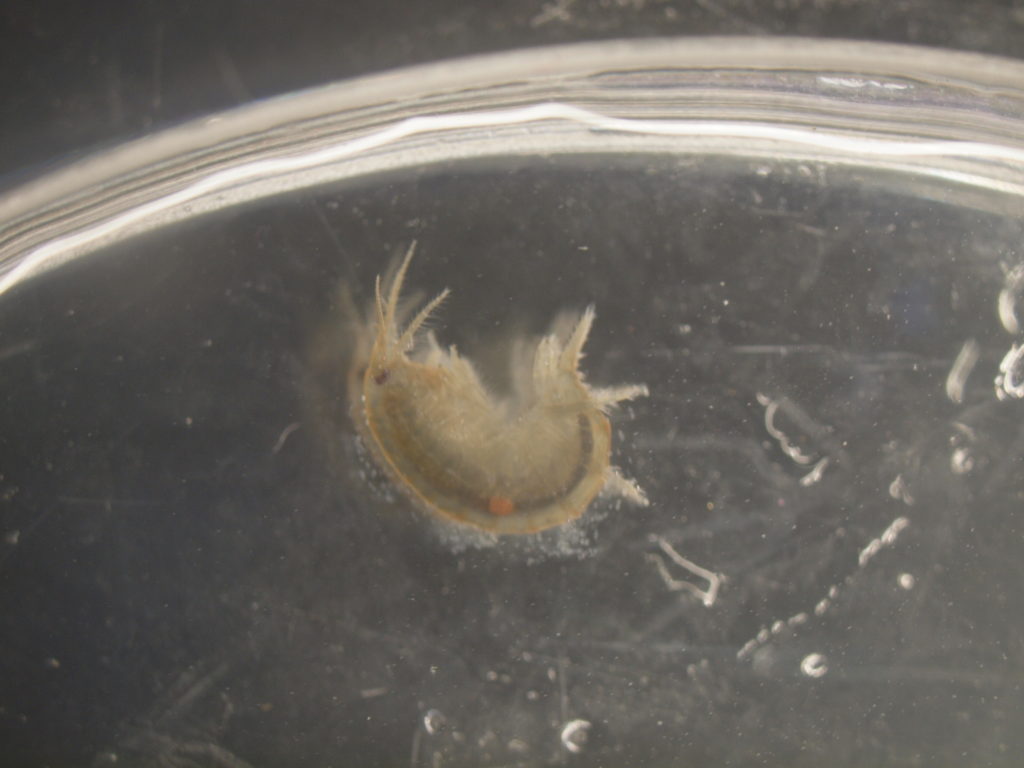
A Gammarus duebeni amphipod infected with the parasite Polymorphus minutus 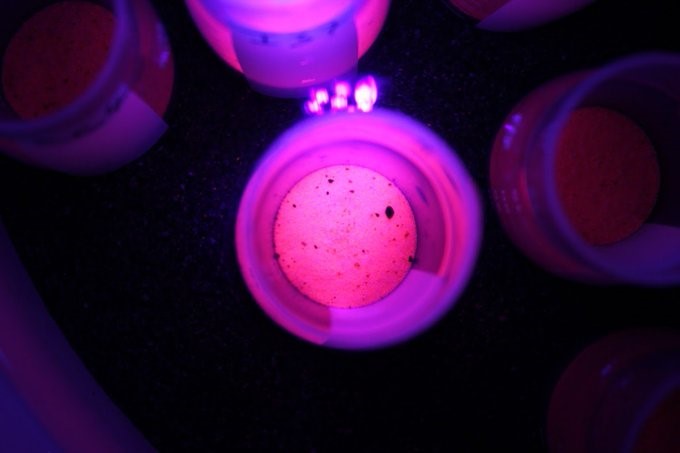
One tube after the experiment had finished 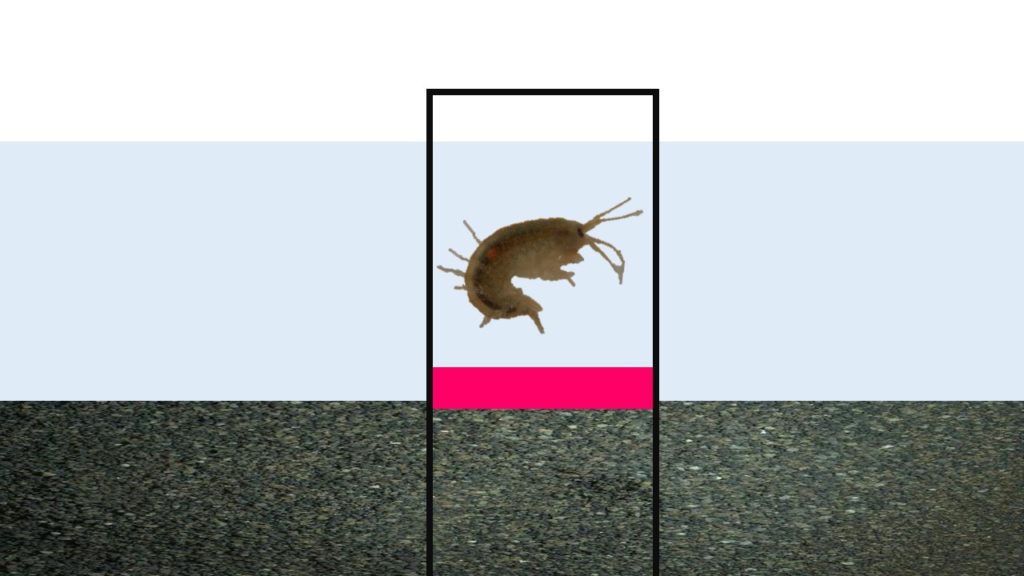
Diagram of the bioturbation experiment set up
To answer our question, we used neon sand, a digital camera, and open-source software. We put a layer of black lake sand into a bucket and added individual housing tubes for each amphipod. We then added a layer of neon pink sand to the tubes and let the amphipods dig. As the amphipods dug, they brought the dark sand above the neon sand. We then used ImageJ to map the proportion of the dark sand brought up by each individual.
In this paper, we show that infection with parasites and warmer temperatures increase the rate at which the amphipods dig into the sand. It means that: (1) parasites can physically shape their environment by controlling their hosts, (2) temperature has an additive impact on this digging behaviour- when it’s hot they dig more. We predict that this could have consequences for nutrient cycling and community structure within the sand, but more work is needed to know for certain. Overall, these results support the idea that parasites act as ecosystem engineers and highlights their importance in shaping our future freshwater ecosystems.
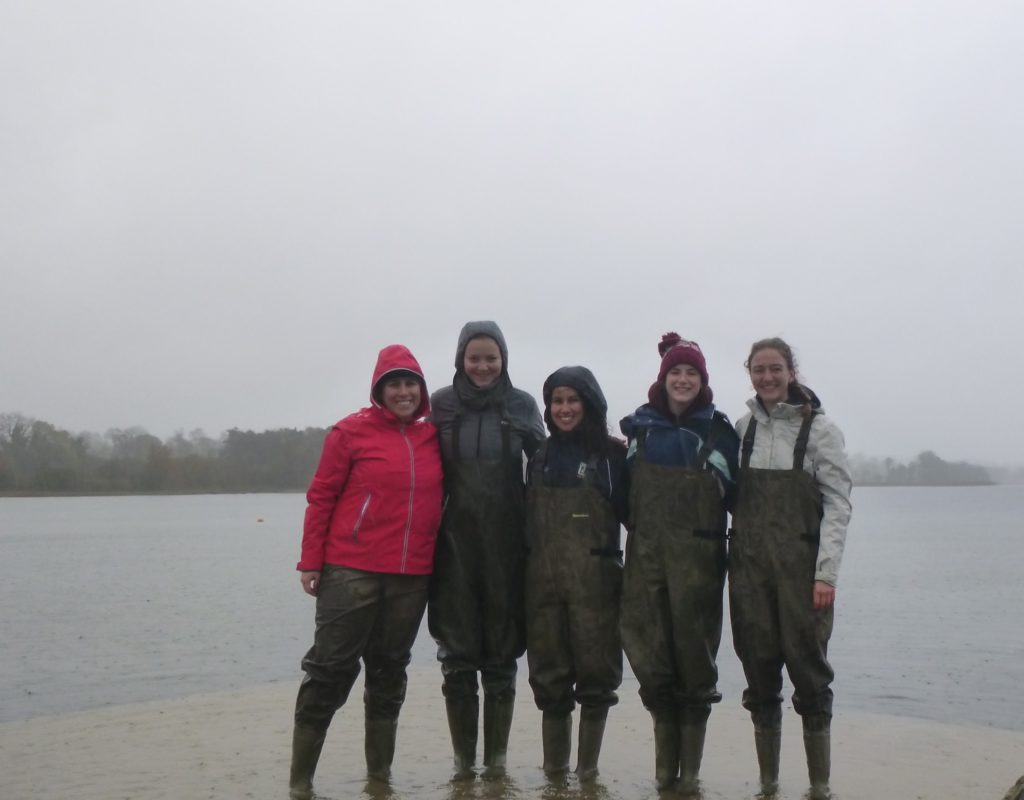
To find out more read our Parasitology paper here:
Williams, M.A., Donohue, I., Picard, J., O’Keeffe, F., and Holland, C. (2019) Infection with behaviour-manipulating parasites enhances bioturbation by key aquatic detritivores Parasitology. https://doi.org/10.1017/S0031182019000635
About the Author
Maureen Williams is a postdoctoral researcher in the Wood Lab at the University of Washington. She completed her PhD with Dr. Ian Donohue and Prof. Celia Holland in the Zoology Department of Trinity College Dublin, where she studied the impact of behaviour-manipulating parasites on their ecosystems. Find out more about her research here:
Website | Maureenannewilliams.weebly.com
Twitter | @modubs11
ResearchGate | Profile
LinkedIn | Profile
Google Scholar | Profile

